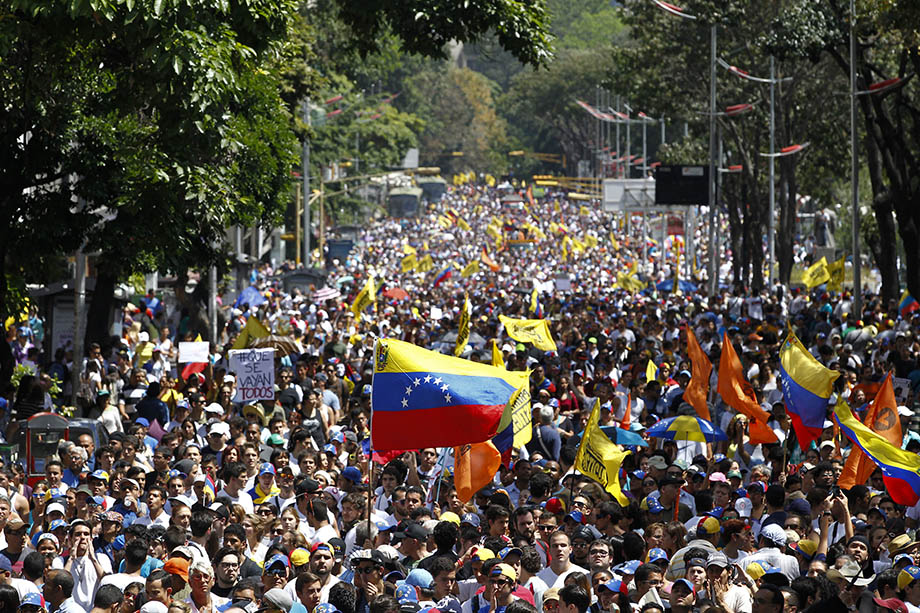
VENEZUELA: ON A ROAD TO NOWHERE

Venezuela’s imprisoned opposition leader Leopoldo Lopez has called for fresh anti-government protests to be held on Saturday.
Since 2014, the Maduro government has come under mounting pressure from the opposition to hold early elections. The country faces the worst economic crisis in its modern history, with inflation figures around 800% and the economy shrinking by 18.6%. Women have been asked not to use hairdryers to save electricity, and staples of the Venezuelan diet – basics like meat, beans and rice – are becoming increasingly scarce.
An increasing number of Venezuelans attribute these problems to the government’s incompetence and corruption; President Maduro blames “foreign agents” – a veiled reference to the US.
The Venezuelan leader recently reshuffled his cabinet in an effort to overcome the crisis. With talks between the governments and opposition having broken down, prospects for a peaceful regime change appear bleak. As the IMF predicts new record inflation rates and a further economic downturn for 2017, future protests may spark sustained violence.
INDIA’S TAX REFORMS: CUTTING THE GORDIAN KNOT

India’s Goods and Services Tax (GST) Council will convene today to finalise the draft law for the country’s new unifying tax code. PM Narendra Modi aims to introduce the bill to Parliament in March and hopes for a rollout by midyear.
The country of 1.3 billion has long suffered from a miasma of tangled tax laws. A company wishing to do business in India must deal with around a dozen different central government taxes as well as 29 types of state levies. This deters foreign companies from setting up shop – the World Bank ranks India 157th out of 189 for tax simplicity. A firm often has to duplicate its supply chain in each state, causing costly trade distortions. The new GST will do away with this and radically alter the way business is done in India.
Some disruption will occur: supply chain restructuring and price negotiations will take a toll on certain companies. However, the tax unification scheme is predicted to eventually boost GDP growth by 1-2% per year.
Not everyone is happy about the new tax though. Last month tax workers wore black armbands to work in a nationwide protest against the job losses the GST could cause. Unifying tax rates across India’s states will mean less paperwork for firms, which means less time spent by tax officials checking compliance, which in turn saves the government money. When the tax collectors are complaining that they have too little work, the government must be doing something right.
HAPPENING ELSEWHERE…
Thailand’s military government is expected to submit its election timetable to newly crowned King Maha Vajiralongkorn for approval. Despite promising to hold a fresh vote in 2017, on Feb. 8 the junta’s deputy prime minister said that elections will be held “one year from today”.
Mexico’s government will continue to lift fuel subsidies on Saturday, meaning Mexicans will pay even more at the pump – but still less than the going market rate. The policy is aimed at ending an expensive fuel subsidy program but has caused large protests and decimated President Enrique Pena Nieto’s approval rating.
Turkish PM Binali Yildirim will make a speech in the western German city of Oberhausen to mobilise support for President Erdogan’s referendum to strengthen the role of the presidency. Turks form the largest ethnic minority in Germany – an estimated 4 million descendants call the country home, which is the largest Turkish population outside of Turkey proper.

